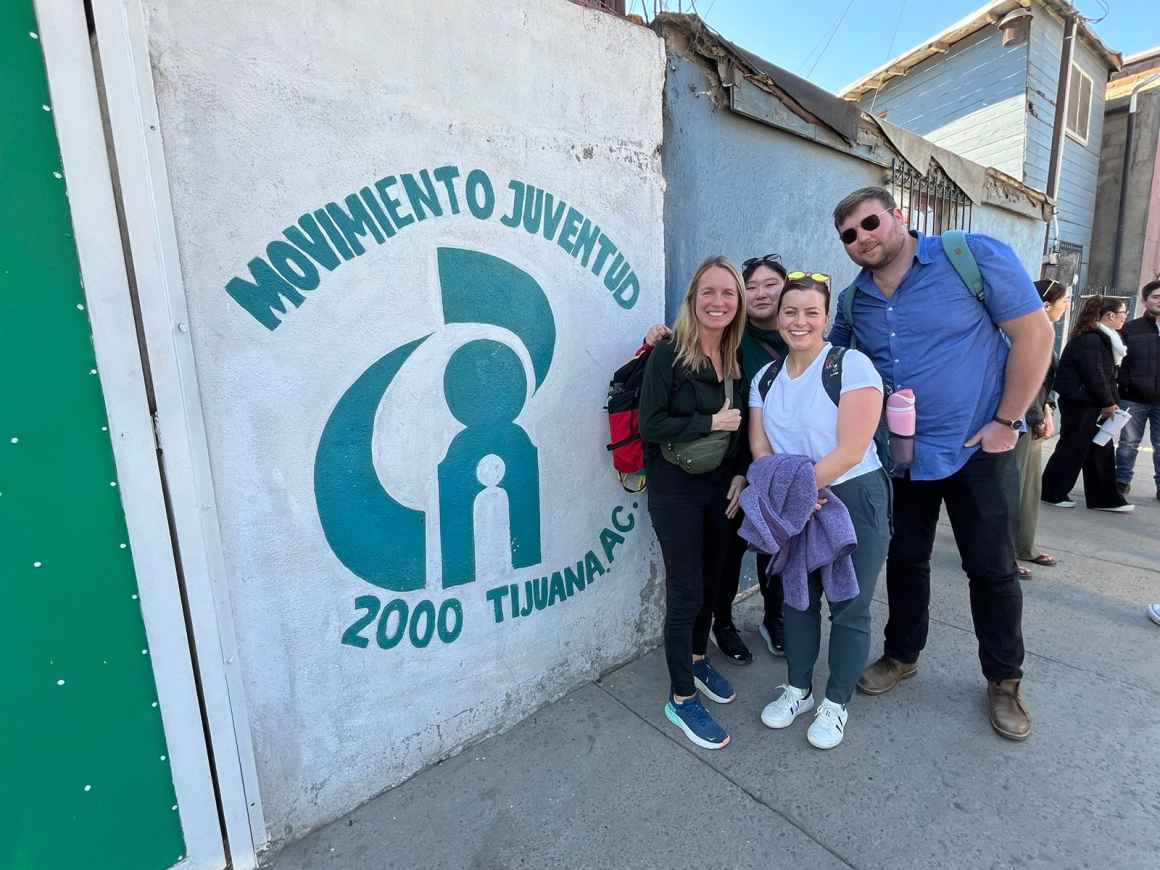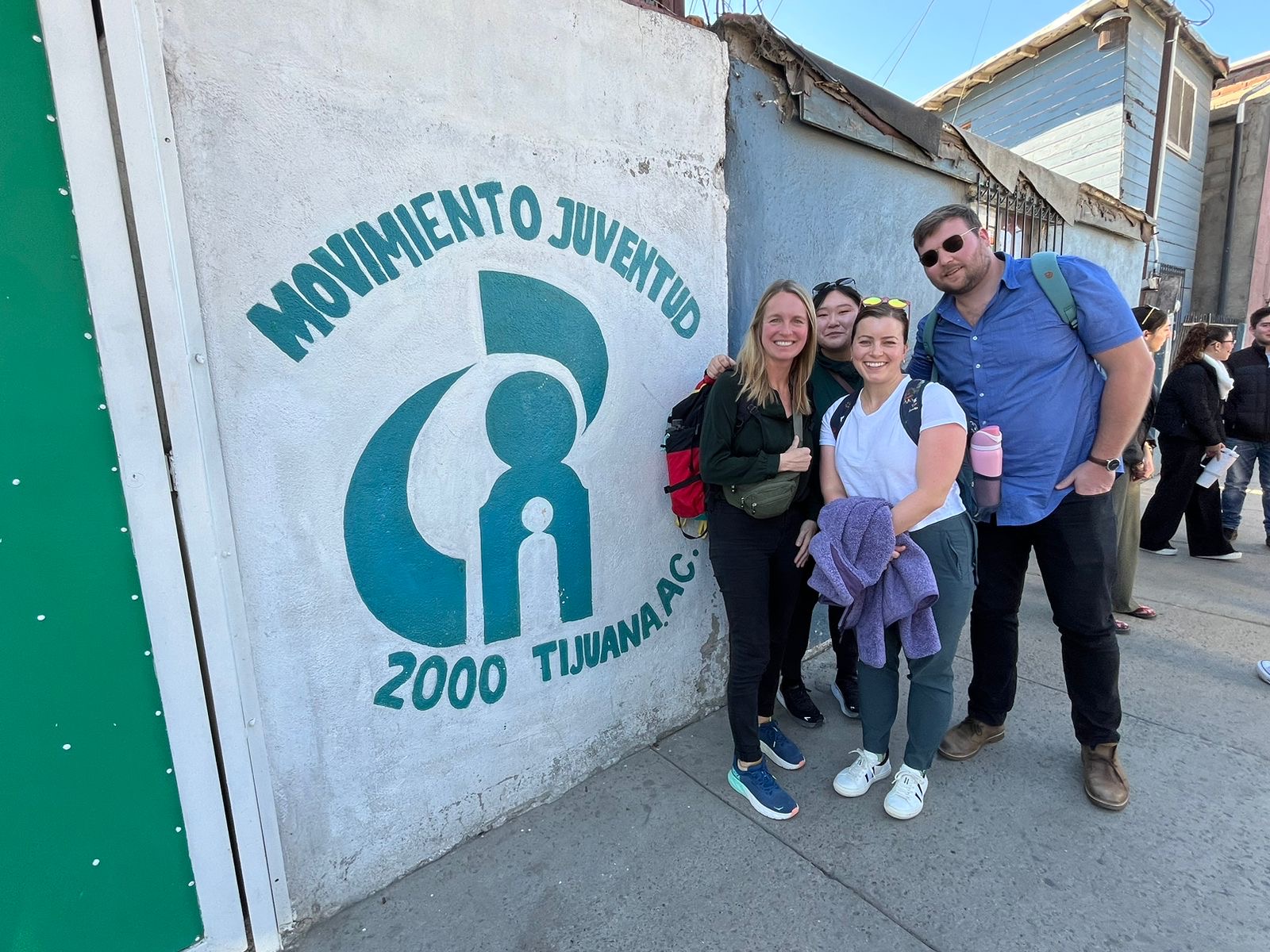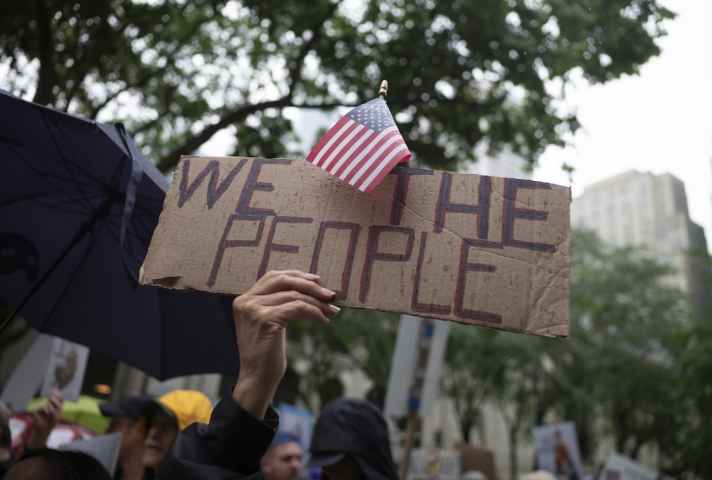Join us on Wednesday, November 12, for the 2025 Scolnik Award Reception. Gather over cocktails, hors d’oeuvres, and conversation to celebrate and honor the work happening throughout Maine to defend civil rights and liberties.
We are delighted to bring back the annual Justice Louis Scolnik Award on November 12, 2025! This year, we are proud to present the Scolnik Award to Professor Anna Welch, Founding Director of the Refugee and Human Rights Clinic at Maine Law. Through her courses, her fieldwork, and as a clinical professor and attorney, Professor Welch is meeting the needs of those most vulnerable while inspiring a new generation of immigration advocates.
At a time when immigrants’ rights and due process for all people are under attack like never before, we are thrilled to honor Professor Welch’s leadership at the Refugee and Human Rights Clinic and her work preparing and inspiring young people to advance public interest law. Through her courses, her fieldwork, and as a clinical professor and attorney, Professor Welch is meeting the needs of those most vulnerable while inspiring a new generation of immigration advocates.
Under Professor Welch’s leadership, the Refugee and Human Rights Clinic received the 2022 Clinical Legal Education Association (CLEA) Award for Excellence in a Public Interest Case or Project. This honor was conferred in recognition of the Refugee and Human Rights Clinic’s multi-year investigation into concerning practices at the Boston Asylum Office. The report, Lives in Limbo: How the Boston Asylum Office Fails Asylum Seekers, was published in partnership with the ACLU of Maine, the Immigrant Legal Advocacy Project (ILAP), and Dr. Basileus Zeno.
Pictured: Professor Welch with students in Mexico
In addition to supervising law students on direct representation matters for asylum seekers and other vulnerable individuals, Professor Welch has launched a number of outreach and advocacy projects in collaboration with a range of partners, including the ACLU of Maine. For example, over the last several years, students in the clinic have assisted immigrants in civil immigration custody within jails, prisons, and private detention centers throughout New England, the U.S., and at the U.S./Mexico border in Laredo, Texas. Through these projects, student attorneys in the clinic provide legal resources and limited legal advice to individuals who otherwise lack legal help. The lack of readily available legal help for immigrants is an ongoing crisis, and detained immigrants are not afforded the constitutional right to an attorney despite the often life or death stakes at play.
This work reflects the clinic’s dual mission of training future lawyers while engaging in broader outreach and advocacy. One student who participated in the clinic’s detention work told the Portland Press Herald, “now that I’ve seen firsthand what it’s like for some of these women who come to the United States, the immense trauma that they go through, that will forever shape the way I interact with future clients or immigrants.”
A Maine native, Professor Welch graduated with high honors and highest distinction (Phi Beta Kappa) from the University of Colorado at Boulder, where she studied journalism and Spanish. She then went to the Washington College of Law at American University. She graduated summa cum laude, order of the coif, and then went to Peru for a year, beginning in August of 2005, as a Fulbright Scholar. Following her time in Peru, Professor Welch practiced at the law firm Verrill, eventually as the head of the firm’s Immigration & Global Migration Group. She then served as a fellow at Stanford Law School where she taught and supervised students within Stanford’s Immigrants’ Rights Clinic. In 2012, Professor Welch returned to Maine and launched the Refugee and Human Rights Clinic at Maine Law.
This signature event honors the legacy of Louis Scolnik, a justice on the Maine Supreme Judicial Court, and the co-founder and first president of the ACLU of Maine. Justice Scolnik dedicated his life to the pursuit of fairness and equality under the law, and this event continues his vision by celebrating those who carry that work forward today.
The Scolnik Award Reception brings together community leaders, advocates, and supporters from across Maine who share a deep commitment to justice. Join us to honor Justice Scolnik’s enduring legacy and ensure the ACLU of Maine can continue its vital work in the courts, at the State House, and in communities.
In these times, it is so important that we gather to celebrate and recognize the amazing work being done throughout the state. Come enjoy cocktails and appetizers, and connect with others who care about civil rights and civil liberties in Maine!
Reaching out into Casco Bay and welcoming newcomers to Portland, Ocean Gateway is the City’s waterfront jewel. The spectacular setting of islands and water enhances the beauty of the architecture, which was designed to resemble the prow of a ship.
Parking is available in the Ocean Gateway Visitor Center lot, with additional spaces along the large lot next to the venue. You'll also find plenty of street parking nearby.







